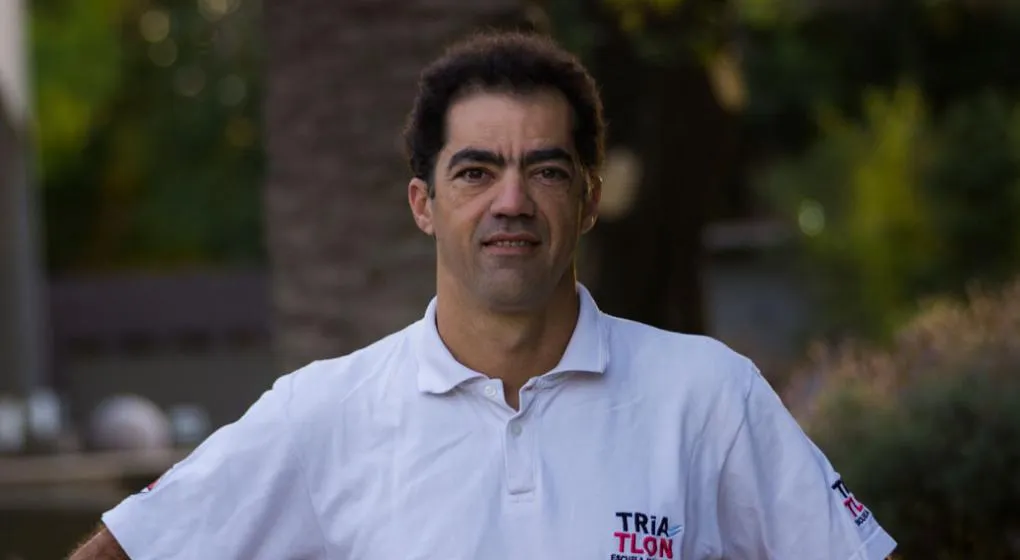He was diagnosed with the disease at age 17 and that hindered him the entrance to the Physical Education career.However, he could complete it and also faced sports projects to raise awareness about pathology.
Abayubá Rodríguez is 49 years old, is a professor of Physical Education, director of the Argentine Triathlon School and event organizer of Iron Man, a demanding sports test that implies completing in a maximum time of 17 hours three stages: 3.86 kilometers of swimming;180 of cycling and 42.2 of career on foot or marathon.
In addition, it was news in 2008 for being the father of the first baby born by ovules vitrification, an increasingly used technique in the country.That practice allowed him to be a father at age 40, after 12 trying with various treatments with his wife.
Rodríguez is clearly a man who does not give up and not only because he dedicates himself to a demanding discipline, or because he did not give up his desire to be a father when nature put obstacles.
At 17, when his professional path began, he ran into the first great obstacle: the diagnosis of diabetes.That faced a change of life and an additional effort to enter physical education teachers.
It is insulin -dependent, but that did not prevent him from doing triathlon and, in order to extreme the challenge and motivate the population that has diabetes, led a crusade known as “Flag to heaven project” that was developed for four years.Through it, athletes from eight countries held 11 events with the slogan "with diabetes, you can", which included milestones such as Chapelco tetratlón in 2007 - at the beginning of the initiative - or the rise to Aconcagua in February 2011.
"I always say:‘ Before I thought that health depended on luck, but now I know that it depends on me, "says Rodríguez, also sports director of Iron Man Argentina."I train for 30 years, now I take it more recreationally and with the aim of keeping myself in activity," he adds.Due to its center - he affirms - 5,200 people passed, most did not have diabetes, but neither did they have it so easy: they had to break the inertia, overcome physical and mental limits.
With the aim of taking advantage of the association between its activity and the chronic disease it has, Rodríguez carried out the Diabetes Educator course carried out by the Argentine Diabetes Society (SAD)."I wanted to have a more formal knowledge," he summarizes.
It was also a way of deepening self -knowledge, learning that had begun with the diagnosis and continued in teachers.
"My parents were related to medicine and they both put me under the best professionals," he recalls."They suggested that I could not have a full life, at least, in the sense of fullness that I wanted," he adds.And complete: “We all have conditions and mine is one more.Technology allows me to do several glucose tests per day and supply insulin, depending on indicators, something that 30 years ago could not. ”
He clarifies that he tries to "not indoctrinate people about health care, but to normalize their life", referring to a way of issuing messages that could be counterproductive.And it ends with a phrase that is common among those who overcome any type of difficulty: “What does not kill, strengthens.That was a key motto for me. ”
It also says that athletes who participated in the flag to heaven remain communicated in different groups.That also allows them to socialize experiences and knowledge about the disease they share."Everyone brings the latest market, both in terms of medications, and inputs, and we get conclusions based on that."
And complete: "The programming of events was suspended, the affective remained and each followed in their country, in their community and took advantage of the experience."He insists that, although he is an educator, his role has nothing to do with knowledge: “We are more public than protagonists and more ignorant than knowledgeable.The idea is to help the other. ”
Rodríguez clarifies that he takes precautions for secondary prevention;that is, the one that seeks to avoid complications of diabetes.“I'm not a kamikaze.We have been in complicated places, such as high mountain, and one understands that there are collections to be taken, have diabetes or not.Remember, for example, that one can have less sensitivity in the feet and that injuries can affect it. ”"I simply take care of me," he concludes.


